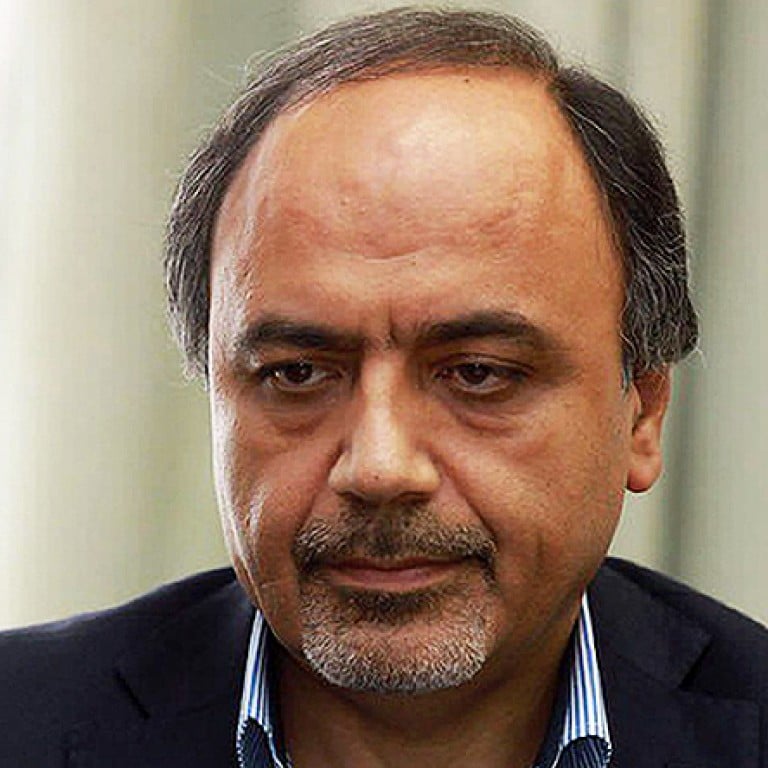
US sets dangerous precedent in denying visa to Hamid Aboutalebi
Kantathi Suphamongkhon says same message could have been sent by imposing travel restrictions
The United States has refused to issue a visa to Hamid Aboutalebi, Iran's choice as its next ambassador and permanent representative to the United Nations in New York.
Aboutalebi has been accused of having links to the "students" who seized the US embassy in Iran in 1979 for 444 days. He has claimed that he was merely serving as an interpreter at that time, nothing more.
Both houses of the US Congress voted unanimously to prevent Aboutalebi from entry into the US. Though US President Barack Obama has signed the bill into law, he made clear he would treat the law "as advisory". He said the law could curb his power under the US constitution to receive or reject ambassadors, thus he would consider it "advisory in circumstances in which it would interfere with the exercise of this discretion".
The US decision to deny a visa for Aboutalebi sets a dangerous precedent for world diplomacy. It is awkward, to say the least, for a member state to reject another member state's choice of its ambassador to the United Nations. The US could also be accused of violating international law, thereby giving Iran the honour and prestige of being on the right side of the law.
Here are some elements that should be considered.
The US government has every right to refuse a visa for a foreign ambassador to be accredited to the United States. This right does not apply to a foreign ambassador to be accredited to the United Nations. Here, the US, as a host country, has clear legal obligations under the 1947 Headquarters Agreement between the United States and the United Nations.
In section 13 of the agreement, the US agreed that the laws and regulations in force in the United States regarding the entry of aliens shall not be applied to persons appointed by other member states to represent them. The agreement requires that "when visas are required for such persons, they shall be granted without charge and as promptly as possible".
Iran has indicated that it will stand by its decision to nominate Aboutalebi to the UN post and will "pursue the matter via legal mechanism" at the United Nations.
A state cannot use its domestic law to justify a violation of international law. The US regards Aboutalebi's presence in the United States to be a threat to its security. This argument is weak. Aboutalebi has served as Iran's ambassador to Belgium, the European Union, Italy and Australia. He has also travelled to the United Nations in New York with no incidents.
Instead of violating international law, the US could follow a path that does not violate international law to send the same message to Iran.
Issue the visa for Aboutalebi, with the severest travel restrictions allowed under the Headquarters Agreement. Permit him to travel only on predetermined routes with no stopping privileges other than those required by traffic: to and from John F Kennedy International Airport to the United Nations, his official residence and the Permanent Mission of Iran to the United Nations. Other destinations would be out of bounds for him for the duration of his stay in the United States.
He would not be able to go shopping, attend any parties or functions, nor visit any restaurants, outside of the UN building. US authorities could follow his car continuously upon his arrival at JFK International Airport. His privileges and immunity as a foreign diplomat attached to the United Nations would end immediately if he ventured outside of the authorised routes or made an unauthorised stop. If he did so, he would be subjected to immediate arrest for violating the conditions for his stay in the United States.
What I have suggested would be allowed under Article V, Section 15 (4) of the Headquarters Agreement, which states that, "in the case of Members whose governments are not recognised by the United States", which applies to the Iranian government today, "privileges and immunities need be extended to such representatives only within the headquarters district, their residences and offices outside the district, in transit between the district and such residences and offices, and in transit on official business to or from foreign countries".
Taking this path would make the UN post highly unattractive for Aboutalebi and Iran, while making it impossible for anyone to accuse the US of violating international law. It may have been this same desire of the US to not violate international law in 1984 that led Washington to reject Nicaragua's nomination of Nora Astorga as its ambassador to the US, but allow her to serve as Nicaragua's ambassador to the United Nations in 1986.
